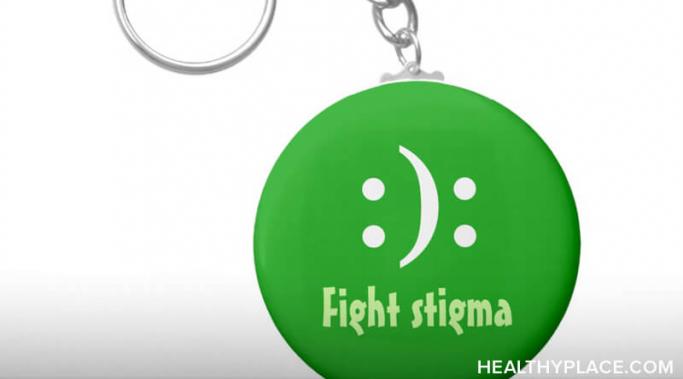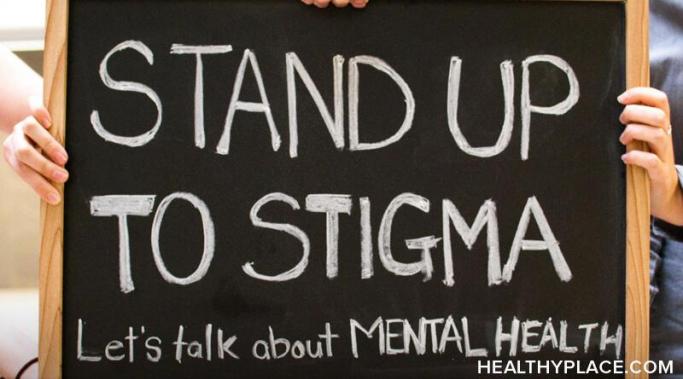I avoided Student Disability Services in college because of mental health stigma. Although I was diagnosed with various mental health conditions as a teen, it wasn’t until college that I truly realized the debilitating effect mental illness could have on my life. I was highly resistant to the idea when an on-campus counselor first advised me to make an appointment with my university’s Student Disability Services department. Sure, I needed help, but I didn’t need that kind of help.
Surviving Mental Health Stigma
Mental illness can affect criminal behavior, but it's important to dissociate people with mental illness from violent acts and criminality in general. People often assume that a person must be mentally ill to commit an especially heinous crime. This stigma has been discussed at length, including how people with mental health issues are more likely to be victims of violent crime, but I want to approach the conversation about mental illness and criminal behavior differently.
Psychiatric medication stigma makes taking medicine a sensitive topic in mental health treatment. While those of us with mental health issues may face psychiatric medication stigma, this can present itself in different ways. Some people believe that taking medication is a sign of weakness or they label people who take mental health medication as “crazy.” On the other end of the spectrum, there are those that think medication is a good choice, but wrongly believe we can cure all mental health problems simply by taking a pill. One way or the other, the psychiatric medication stigma is there.
My name is Rachel Miles, and I am very excited to be joining HealthyPlace to write on Surviving Mental Health Stigma. I was first diagnosed with depression and an eating disorder when I was 16 years old. This resulted in my first hospitalization as well as my first experiences with therapy, medication, and confronting mental health stigma. At the time, I had no idea what a significant part of my life these things would become.
Stigma from within the mental health community is the last place I expected to come across stigma for mental illnesses. Last Wednesday, I went to a mental health event that was about mental illness in general, as opposed to focused on one kind or another. I was at the mental health fair, called MindFest, with the Canadian BFRB Support Network (CBSN), Canada’s only non-profit geared towards raising awareness and providing resources for people with body-focused repetitive behaviors (BFRBs). Since BFRBs are a lesser-known group of disorders, I expected questions, but I didn’t expect stigma from within the mental health community -- the people in attendance.
Awareness weeks for mental health are critical. The sheer mention of an awareness week of any sort may already have you groaning. I know I’ve heard and seen comments from people complaining about how there’s an awareness week for everything. That could be true, but they’re a vital part of the dissemination of information and breaking down stigmas associated with whatever cause they’re for. For causes such as mental illness awareness, awareness weeks are an especially poignant way to demystify what mental illnesses are and are not.
We can be broken down by mental health stigma. Mental health stigma surrounds us everywhere, whether we’re aware of it or not — in movies, television shows, news, literature, and the list goes on. Despite each source generally rehashing the same stigma-fuelled notions and images (or perhaps because of it), the fact that there’s so much stigma can be really draining and we ought to take a moment to practice self-care before mental health stigma breaks us down.
We need to take care of ourselves when facing mental health stigma. A little while ago, I was accused of pandering to mental health stigmatizers because in the blog in question I wasn't going for a throwdown against them. There is a reason for that, which is, even though I share tips how to fight stigma and approach stigmatizers, my main concern lies with the mental health community and the damage that can be done to the people in it when they see stigma all around them. We need to take care of ourselves.
Although I understand the huge amount of frustration that comes from responding to mental health stigma, I also feel that there are two ways to handle irritation. One way is getting mad, worked up, and starting to sling names, threats, and sarcasm around like there’s no tomorrow. The other is to approach these stigmatizers with a level head and facts, and knowing when to disengage. In the world of the Internet, it’s pretty easy to go about the former, but in this blog, I’m going to explain why I think the latter is a much more effective way to respond to mental health stigma.
Clickbait can increase mental health stigma. In the fast-paced world of the Internet, where everyone is vying for even a moment of attention, clickbait has become the way to get people to come to your page, even for sensitive matters such as people’s personal stories of mental illness. Unfortunately, sensationalism takes over and stories get warped to where they sometimes don't even reflect reality. In stories of mental illness, sensationalistic clickbait contributes heavily to stigma.









